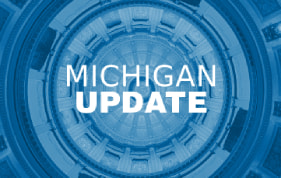This week, our In Focus section examines Medicare Advantage (MA) enrollment changes resulting from the 2020 Annual Election Period (AEP). The AEP takes runs from October 15 to December 7 each year, and provides an opportunity for Medicare beneficiaries to sign up for, change, or disenroll from an MA plan for the upcoming year. The majority of enrollment changes occur during this period, but depending on beneficiary circumstances, additional opportunities may exist throughout the year to change coverage. Initial findings from the enrollment data suggest:
1825 Results found.

HMA experts author LA city and county studies
HMA Community Strategies (HMACS) experts have released a pair of evaluation reports commissioned by the City of Los Angeles and the County of Los Angeles.
HMACS worked with the Los Angeles Housing + Community Investment Department (HCIDLA) to facilitate the inaugural, interactive Los Angeles Poverty Prevention Summit and produced a report and policy recommendations.
The report, Breaking the Cycle of Poverty, Defining Innovative and Equitable Strategies, summarized ideas and input from the summit and provides analysis and recommendations to move forward by harnessing existing resources and leveraging them with other efforts to alleviate poverty in the county.
A second report, prepared for the Los Angeles County Chief Executive Office, evaluated strategies to combat homelessness put forth by the Office of Homeless Initiatives (HI). The evaluation of HI’s strategies is summarized in the report, Evaluating the Effectiveness of Los Angeles County’s Strategies to Expand and Enhance Interim Housing and Emergency Shelter Services. The report focuses on analyzing existing strategies and how they are preforming and goes on to identify best practices and areas of needed improvement.
HMACS is involved in continued work to address homelessness, poverty and other social determinants of health in Los Angeles County and beyond with the goal of improving health and wellbeing, particularly for at-risk patients and families.
The HMACS teams, led by Principal Charles Robbins, also included Catherine Guerrero, Nayely Chavez, and Rathi Ramasamy as well as Michael Stiffler and Kara Riehman.

HMA Analysis of New Requirements Expanding Medicare Advantage Eligibility to Individuals with End-Stage Renal Disease
This week, our In Focus section comes from HMA Principal Eric Hammelman and Senior Consultant Narda Ipakchi. Today, Medicare beneficiaries with End-Stage Renal Disease (ESRD) are only eligible to enroll in Medicare Advantage (MA) plans if they select a MA Special Needs Plan (SNP) that specifically serves individuals with ESRD or develop ESRD while already enrolled in a MA plan. In 2018, approximately 121,000 MA enrollees (0.6 percent of the MA population) had diagnoses of ESRD, accounting for approximately 20 percent of the total Medicare ESRD population.[1] The 21st Century Cures Act, which was passed in 2016, included a provision that alters the eligibility and enrollment options for Medicare beneficiaries with ESRD. Starting in 2021, Medicare beneficiaries with ESRD will be able to enroll in any MA plan in their area. The Centers for Medicare & Medicaid Services (CMS) estimates MA enrollment of individuals with ESRD will nearly double to 242,000 in 2024, or approximately 41 percent of the total Medicare ESRD population.[2]

Medicaid Managed Care Enrollment Update – Q4 2019
This week, our In Focus section reviews recent Medicaid enrollment trends in capitated, risk-based managed care in 29 states.[1] Many state Medicaid agencies post monthly enrollment figures by health plan for their Medicaid managed care population to their websites. This data allows for the timeliest analysis of enrollment trends across states and managed care organizations. All 29 states highlighted in this review have released monthly Medicaid managed care enrollment data into the fourth quarter (Q4) of 2019. This report reflects the most recent data posted. HMA has made the following observations related to the enrollment data shown on Table 1 (below):

HMA to Lead Jail-Based Opioid Response Program in Pennsylvania
In the nationwide effort to combat opioid use disorder (OUD), Health Management Associates (HMA) is expanding its successful Medications for Opioid Use Disorder (MOUD) initiative to jails in Pennsylvania counties. The multi-tiered technical assistance approach, developed by HMA and implemented in the California correctional system, works to combat opioid overdoses by expanding access to treatment for OUD in jails and prisons.

POTUS FY 2021 Budget: Summary of Medicare Provisions
This week, our In Focus section examines President Trump’s budget for fiscal year (FY) 2021. The budget includes a number of legislative and administrative proposals related to Medicare that are estimated to reduce net Medicare spending by $872 billion over the next ten years. It is important to note that the legislative proposals included in the President’s budget are non-binding and serve as recommendations to Congress where they may or may not be advanced. Under a Democratic-majority House of Representatives, many of the legislative proposals outlined in the FY 2021 budget are unlikely to advance. Administrative proposals are more likely to move forward, as the administration can implement these policies through its regulatory channels.

